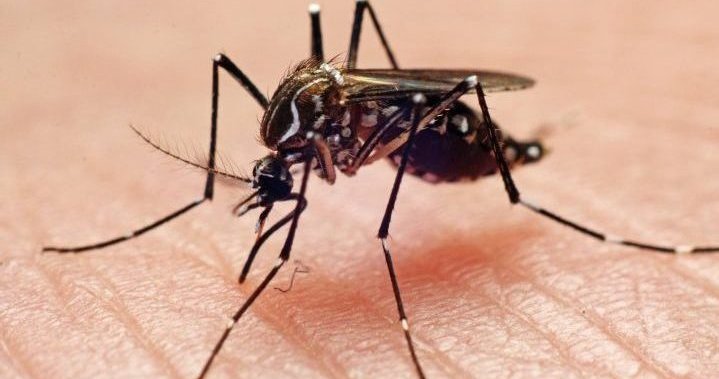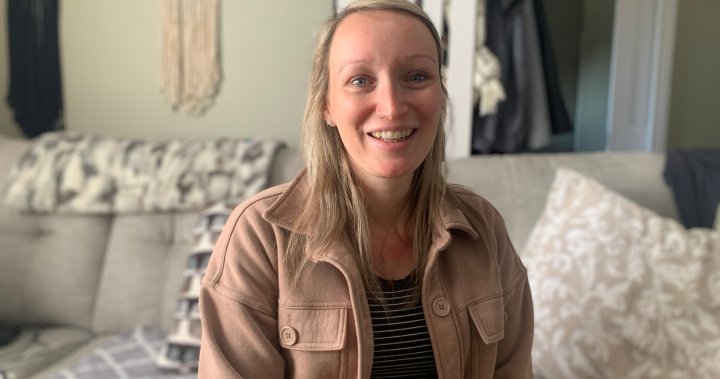With a staggering global surge in dengue fever cases over the past years, health experts are warning Canadian travellers about the risks when journeying to warmer climates, including popular destinations in the southern United States.
Over the last 20 years, there has been a tenfold surge in dengue fever cases globally, according to the World Health Organization (WHO). The number of reported infections, which are transmitted to humans from mosquitoes, increased dramatically from 500,000 in the year 2000 to 5.2 million in 2019.
And with a warming climate, Michael Libman, a specialist in infectious disease and a professor at McGill University, cautions that there could be a continued rise in cases, particularly in warmer regions popular among Canadians seeking refuge during the winter.
“People have to be aware that when they go to any part of the world that’s warm, there is pretty much some risk of picking up a disease like dengue,” Libman said.
“Canadians love to leave Canada in the winter and go to places that are warmer, and almost all of those places have mosquitoes.”
The warning comes after European climate agency Copernicus on Tuesday said in its annual report that 2023 was the hottest year on record. Last year, the global average temperature was 14.98 C — the highest ever recorded since data collection began in 1850. The previous warmest year was 2016, when the average temperature recorded globally was 14.81 C.
The report also found that July and August 2023 were the hottest months ever recorded globally.
The dengue virus is not present in mosquitoes in Canada, but Libman warned that ongoing global warming, attributed to climate change, creates favourable conditions for mosquitoes that carry the virus.
“The risk of dengue does seem to be going up (in tropical regions), and climate change seems to be playing a role in this, which is very important because climate change doesn’t seem to be going away anytime soon,” he said. “I think the risk is increasing and people probably need to be a little bit more cautious.”
Dengue is a disease spread to humans by female mosquito bites and can cause severe flu-like symptoms and in severe cases can be fatal, according to the Canadian government.
The disease is commonly found in tropical and subtropical parts of the world, like Africa, Central and South America, the Caribbean, the Eastern Mediterranean, South and Southeast Asia.
Get the latest Health IQ news.
Sent to your email, every week.
However, because warmer and wet conditions help mosquitoes multiply, dengue has also started to grow in places it was previously uncommon, like Florida, Hawaii, Texas, and Arizona, and parts of southern Europe.
“We’re most concerned about the fact that areas like the southern United States and Europe, as they get warmer and warmer each year, we are seeing that the kinds of mosquitoes that are able to carry dengue are being found more and more in those areas,” Libman said.
The symptoms of dengue fever typically include a sudden onset of high fever, severe headache, pain behind the eyes, joint and muscle pain, rash and mild bleeding. In some cases, dengue infection can progress to a more severe form known as dengue hemorrhagic fever or dengue shock syndrome, which can be life-threatening. It presents more severe symptoms such as persistent vomiting and difficulty breathing.
But most people who get infected have little or no symptoms, he said. And a very small portion who “get very sick” may develop fatal complications, he said. People can get tested for the virus if they have it.
“The thing about dengue, there’s nothing that will tell you automatically, ‘Oh, I’ve got dengue.’ The main thing … is just fever,” he explained. “Some people describe it as having an achy general malaise that they feel like a bus hit them. But not everybody gets sick.”
There are currently no treatment options for dengue.
The current El Niño cycle, which causes increased humidity and rainfall, has contributed to the proliferation of mosquitoes and dengue cases, Libman said.
However, he added that another, more worrisome reason is climate change.
“Over the last decades, climate change itself made more parts of the world more hospitable to mosquitoes,” he warned.
“We’re seeing dengue is going up in many parts of the world and appearing pretty regularly in parts of the world that didn’t used to have dengue at all because they weren’t really that hospitable to this type of mosquito.”
The Canadian government does not have a travel advisory in place for dengue fever, but states on its website that “all travellers are at risk in areas where dengue occurs.”
The risk is also higher during the daytime, particularly around sunrise and sunset. Mosquitoes can transmit dengue even in shady areas, when it is overcast, or if you are indoors, it warned.
Unlike malaria, which is very regional to certain parts of the world, Libman explained that dengue is spread throughout the entire globe — mainly in warmer places that have mosquitoes.
“There’s no particular travel advisory because there’s no one area of the world where it’s really much more of a risk than another part of the world,” he explained. “Dengue is present where mosquito control is maybe not that good.”
Although there are some vaccines available in parts of the world that are endemic to dengue as Thailand, Libman said that currently there are not any available for Canadians.
Several emerging options are in the development pipeline, including one vaccine that is currently undergoing Health Canada’s review, he said. It is anticipated this may potentially be on the market by the end of 2024.
In the meantime, it is all about prevention methods when staying safe in tropical and subtropical regions.
“Dengue is mostly a question of protecting yourself from mosquito bites,” Libman said.
He recommended using mosquito repellants, wearing long clothing, staying in air-conditioned or screened accommodations, and avoiding areas with standing water.
“If you happen to be living in an area where there’s no air conditioning and there’s no screening, then you want to be using mosquito nets around your bed,” Libman recommended.
“But that’s kind of all we have for the moment,” he said. “We are looking forward to having vaccines that are reasonably effective. But for the moment, we don’t have that yet.”
— with files from Global News’ Saba Aziz




